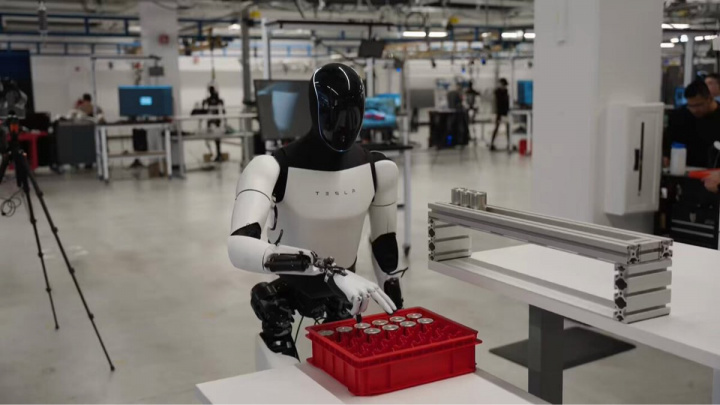AlphaChip: How AI is Revolutionizing Chip Design
Google DeepMind recently announced AlphaChip, an open-source artificial intelligence system set to revolutionize computer chip design. AlphaChip can generate optimized chip layouts, a crucial step known as floorplanning, in mere hours, compared to the months it can take using traditional human-led methods. This breakthrough was notably detailed in a 2021 publication in the journal Nature.

According to Google DeepMind, AlphaChip has already been instrumental in designing the last three generations of Google's Tensor Processing Units (TPUs), accelerating AI progress and transforming the landscape of chip manufacturing and design.
Overview of the AlphaChip AI System
AlphaChip employs a sophisticated reinforcement learning approach to optimize chip design, treating the complex task of floorplanning like an intricate puzzle. Key features of the system include:
- Utilizing a novel "edge-based" graph neural network to learn the relationships between chip components.
- Treating chip floorplanning as a game, placing circuit components sequentially onto a grid (the chip canvas).
- Improving with experience, becoming faster and more accurate over time by learning from past placements.
- Capable of generalizing across different chip designs, enabling its broad application.
- Undergoing pre-training on various chip blocks from previous generations before tackling current designs.
- Generating layouts (floorplans) in hours, compared to weeks or months of human effort.
- Achieving superhuman performance in optimizing wirelength and component placement, key metrics for chip efficiency and performance.
AlphaChip's methodology mirrors that of AlphaGo and AlphaZero, applying reinforcement learning techniques to a complex real-world engineering problem. This innovative method has not only accelerated the chip design process but has also opened new possibilities for creating more efficient and powerful computer chips for various applications.
Impact on Google TPU Design
AlphaChip has significantly influenced the design of Google's Tensor Processing Units (TPUs), playing a crucial role in optimizing the last three generations of these AI accelerators:
- For the TPU v5e, AlphaChip placed 10 blocks and achieved a 3.2% reduction in wirelength compared to human experts.
- In the current 6th generation TPU, named Trillium, AlphaChip placed 25 blocks and achieved a 6.2% reduction in wirelength.
Trillium, Google's sixth-generation TPU, delivers nearly five times the peak compute performance per chip compared to its predecessor, boasts double the memory bandwidth, and shows a 67% improvement in energy efficiency. These advancements have directly contributed to the development of Google's powerful generative AI systems, including large language models like Gemini, and image and video generators like Imagen and Veo.
Industry Impact
AlphaChip's influence extends beyond Google, sparking a wave of innovation in AI-assisted chip design across the semiconductor industry:
- Major players like MediaTek have adopted and expanded upon AlphaChip's capabilities to accelerate the development of their most advanced chips, including the Dimensity Flagship 5G used in Samsung smartphones.
- SEMI forecasts that global spending on 300mm fab equipment could reach a record $400 billion between 2025 and 2027, driven partly by the growing demand for AI chips in data centers and edge devices – chips whose designs are increasingly AI-assisted.
This investment surge reflects the growing recognition of AI's potential to revolutionize chip design and manufacturing processes.
Open Sourcing and Future Potential
Google DeepMind has released comprehensive open-source resources for AlphaChip, enabling researchers and developers to explore and build upon this groundbreaking technology. The open-source package includes:
- A software repository that fully replicates the methods described in the original *Nature* paper.
- A pre-trained model checkpoint trained on 20 TPU blocks.
- A detailed tutorial explaining how to perform pre-training using the open-source repository.
These resources are available on GitHub, allowing external researchers to pre-train the system on different chip blocks and apply it to new designs.
Looking ahead, Google aims for AlphaChip to optimize every stage of the chip design cycle, from computer architecture exploration to manufacturing. This could lead to the development of even faster, cheaper, and more energy-efficient chips for a wide range of devices, from smartphones to medical equipment and agricultural sensors.
Summary and Future Outlook
The introduction of AlphaChip marks a significant milestone in artificial intelligence and chip design. The system not only dramatically speeds up the design process, specifically floorplanning, but also has the potential to yield higher quality and more efficient chips. This development is expected to have a profound impact on numerous industries, from consumer electronics to autonomous vehicles.
AlphaChip creates a powerful feedback loop: AI-designed chips enable more advanced AI models, which in turn can design even better chips. This cycle could dramatically accelerate progress in both chip design and artificial intelligence itself.
As this technology evolves and becomes more widespread, it will be fascinating to see how it transforms not only the tech industry but also our daily lives. The significance of AlphaChip extends beyond chip manufacturing – it represents a step towards AI playing a fundamental role in designing and developing the technologies of the future.





